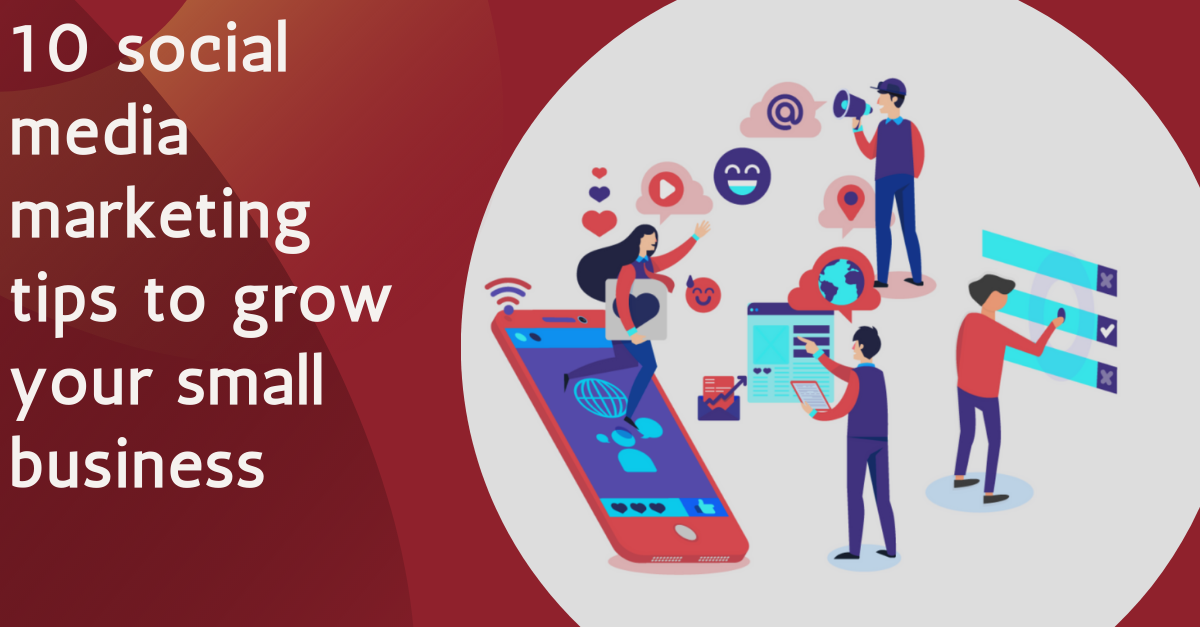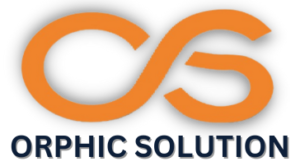Digital Marketing Tips
Boost Your Brand: 5 Secret Digital Marketing Strategies

Secret Digital Marketing Strategies. In the digital realm, your brand’s success hinges on effective marketing strategies that resonate with your target audience. As we delve into the digital marketing landscape, here are five innovative and practical tips to enhance your brand’s online presence and foster substantial growth.
Craft Compelling Content That Speaks to Your Audience : Secret Digital Marketing Strategies
Content is the cornerstone of digital marketing and serves as your primary means of communication with potential customers. Creating content that not only informs but also entertains and inspires, can set your brand apart from the competition. Here’s how you can excel:
Understand Your Audience: Develop buyer personas to tailor your content to meet the needs and solve the problems of your specific audience.
Diverse Content Formats: Utilize blogs, videos, podcasts, and infographics to cater to different preferences and increase engagement Secret Digital Marketing Strategies .
Consistency is Key: Keep your content fresh and consistent to keep your audience coming back for more. Establish a content calendar to manage your content strategy effectively.
Optimize for Search Engines and Humans Alike : Secret Digital Marketing Strategies
SEO is evolving; it’s no longer just about the search engines but also about optimizing your content for the people who will read it. To dominate in SEO, focus on:
User Experience (UX): Google places high importance on user experience, which includes website speed, mobile-friendliness, and intuitive navigation.
Keyword Intent: Instead of keyword stuffing, focus on what the user intends to find and provide content that meets their intent.
Quality Backlinks: Earn backlinks by offering valuable content that other sites want to reference, which still remains a top ranking factor for SEO Secret Digital Marketing Strategies .
Engage and Grow on Social Media : Secret Digital Marketing Strategies

Social media is a dynamic platform for real-time engagement with your audience. It allows for direct interaction and the viral sharing of content. To leverage social media effectively:
Choose Platforms Wisely: Focus on platforms where your target audience spends most of their time.
Interactive Content: Use polls, live videos, and stories to engage your followers actively.
Analytics: Use social media analytics tools to gauge the effectiveness of your campaigns and understand audience preferences Secret Digital Marketing Strategies .
Use Data-Driven Insights to Inform Strategies : Secret Digital Marketing Strategies
In the age of big data, making decisions based on analytics can give you a competitive edge. Implement tools and strategies that allow you to capture and analyze data effectively:
Conversion Tracking: Implement tools to track user actions that contribute to your business goals, such as Google Analytics.
Customer Feedback: Regularly solicit feedback through surveys and reviews to understand customer satisfaction and areas of improvement.
A/B Testing: Routinely test different versions of your web pages and marketing emails to find what works best for your audience.
Personalize Your Marketing Messages : Secret Digital Marketing Strategies
As digital spaces become more crowded, personalized marketing becomes key to standing out. Personalization can significantly enhance customer engagement and satisfaction:
Segmentation: Segment your audience based on their behavior, demographics, and preferences to tailor your marketing messages effectively.
Dynamic Content: Use technology to create dynamic content that changes based on the interests or past behavior of the viewer.
Retargeting: Implement retargeting strategies to draw back visitors who didn’t convert the first time.
FAQS
What are the benefits of using digital marketing strategies for brand promotion?
Digital marketing offers numerous benefits for brand promotion, including increased brand visibility, targeted audience reach, cost-effectiveness, measurable results, and the ability to adapt and refine strategies based on performance data.
How can digital marketing strategies help boost brand awareness?
Digital marketing strategies such as search engine optimization (SEO), content marketing, social media marketing, and influencer partnerships can help increase brand visibility and reach a wider audience by creating engaging content, fostering online communities, and leveraging popular online platforms.
What role does content marketing play in digital marketing strategies for brand promotion?
Content marketing is essential for building brand credibility, establishing thought leadership, and engaging with your target audience. By creating valuable and relevant content that resonates with your audience, you can attract and retain customers, drive traffic to your website, and ultimately boost brand recognition and loyalty.
How can social media marketing contribute to brand promotion?
Social media marketing allows brands to connect with their audience on a personal level, humanizing their brand and building trust. By engaging with followers, sharing relevant content, running targeted ads, and leveraging user-generated content, brands can increase brand awareness, drive website traffic, and generate leads.
What are some effective digital marketing strategies for lead generation?
Digital marketing strategies such as email marketing, pay-per-click (PPC) advertising, and lead magnets can be highly effective for lead generation. By offering valuable incentives such as discounts, free trials, or exclusive content in exchange for contact information, brands can capture leads and nurture them through the sales funnel.
How important is it to measure the success of digital marketing strategies?
Measuring the success of digital marketing strategies is crucial for optimizing performance and maximizing ROI. By tracking key performance indicators (KPIs) such as website traffic, conversion rates, engagement metrics, and ROI, brands can identify areas for improvement, refine their strategies, and achieve their marketing objectives more effectively.
Blog
7 Proven Techniques of the Best Digital Marketing Company in Bhopal

Today, there is no question that digital marketing is not a choice but rather a must. Whether you run a small local shop or a big national company, your online presence is crucial.
The top digital marketing agencies in Bhopal apply a combination of tactics including seo, social media marketing, web development and paid advertising in order to greatly grow your business.
In this post, we highlight 7 key strategies top digital agencies implement to drive traffic, gain leads and sales for local businesses in Bhopal.

Importance of Digital Marketing for in Bhopal Businesses
Bhopal is an evolving market and it’s completely dependent on internet surfing to let people make purchases. Whether it’s restaurant meals or real estate, customers go online for information before making purchases.
A good marketing agency in Bhopal can assist your business:
SEO and Social Media Optimization for more online visibility
Generate leads with targeted PPC ads Create qualified leads through PPC ads that are targeted to promote your firm for the services important to business owners.
Establish trust and authority through epic content
Personalize campaigns for a local market, so that your marketing is more relevant
Example:
A local restaurant making smart choices online can rank in “near me” searches, drive foot traffic and ramp up its online orders thanks to Google and Instagram ads.
Develop an Effective Digital Marketing Strategy
Every winning campaign begins with a detailed, actionable plan.
Your strategy should include:
Market research and competitor analysis
Knowing your audience and their needs
Selecting appropriate marketing channels (SEO, social media, PPC, etc.
Establishing Goals and KPIs to define success
Pro Tip:
Begin with organic marketing including SEO and social media. When you get the ball rolling, invest in some PPC advertising for quicker results.
Smart SEO with Latest Updates
SEO is the lifeblood of digital expansion. One of the best SEO companies in Bhopal has been working on following three factors.
On-page SEO: It relates to all factors on your own website which can be optimised for search engines like google, including content, meta tags and internal hyperlink building.
Off-page SEO: Generating quality backlinks and citations for local business
Technical SEO: Increasing speed, mobile responsiveness and site structure.
The ability of your site to evolve and avoid getting penalised is determined by its keep-it-fresh score, not the arbitrary date you published it.
Example Keyword Use:
“Our team stays up to date with the most recent SEO changes to help our clients rank and maintain their rankings over time.”
High-Performing Website Design & Development
Your website is essentially your digital shop front. Slow or poorly designed, potential customers will go elsewhere.
What A web design company in Bhopal does?
Mobile-friendly, responsive designs
Pages load in less than 3 seconds
SEO-friendly structure and clean coding
Clean and tidy navigation with strong CTA buttons
A web development company in Bhopal, on the other hand, makes sure your website is secure and scalable along with incorporated analytics to track well.
Internal Linking Tip:
Link this to your web development service page for stronger SEO.
Social Media Marketing That Engages
Social media isn’t just about posting images-it’s also a place to connect with your audience.
An effective social media marketing strategy consists of:
Interactive material such as reels, videos and infographics
Consistent posting schedules
Utilize local hashtags and trending topics.
Creating paid advertisements for targeted exposure
Example:
A Bhopal-based apparel brand saw sales take a 45% jump after posting Instagram ads and tied up with local influencers.
Focused PPC Campaigns for Immediate Effects
PPC advertising is all about getting immediate exposure and instant results when done right.
The top agencies use to advertise by PPC:
Google Ads for search-driven traffic
Facebook & Instagram Ads for local targeting
LinkedIn Ads for B2B businesses
Benefits of PPC:
Instant traffic and visibility
Better audience targeting
Easy tracking and measurable ROI
Internal Linking Tip:
For more details, link to your PPC service page.
Tactic 6 – Always Blog And Create Content Old but new, this takes people away.
Your content is what helps you build that trust and get established as an authority in your niche.
Top agencies focus on:
Blogs that highlight response to customer questions on a weekly basis
Local seo content for bhopal audiences. 2019 hsn code list city wise searchable pdf and excel file.
Educational resources to nurture leads
Example Blog Topics:
24 SEO Updates Every Business Owner Should Know
Why to Join Web Development Classes in Bhopal? Opportunities on Your Career”
Top Small Business Digital Marketing Trends
Follow Data to Analyze and Improve
Digital marketing is not a one-time job. You must monitor your progress and optimize incessantly.
You can do this through tools such as Google Analytics and Search Console:
Monitor traffic and conversions
Identify underperforming pages
Modify tactics according to the facts
Pro Tip:
Weekly review of analytics with small, steady changes.
FAQs
Q1. What would you need a digital marketing company in Bhopal?
Local agencies simply know the market, competition, how customers behave better and that gives you a definite edge.
Q2. How frequently should I be updating my SEO strategy?
No less than 4 times per year or after significant Google algorithm changes.
Q3. What is more effective: SEO or PPC?
SEO is for sustainable growth, PPC is providing instant results. A mix of both is ideal.
Q4. What are the best in digital marketing topics to study?
SEO, social, PPC, content and analytics.
Conclusion & Call to Action
Developing an effective internet presence is hard – it takes a lot of time, consistency and knowhow. With these seven strategies, your business can differentiate itself and grow at a faster pace than that of the competition.
Final Tip:
Collaborate with a reliable digital marketing agency in Bhopal to receive professional advice and measurable results.
Ready to grow your business?
Reach out to Orphic Solution now for a free SEO analysis and consultation.
Blog
Top 10 Social Media Marketing Tips to Grow Your Brand

Growing your brand on social media can seem challenging, but with the right strategies, it can be a rewarding experience. Here are ten effective social media tips to help you boost brand awareness and engagement.
1. Define Your Goals
The first step in social media marketing strategies is to define your goals. Are you looking to grow your brand on social media, increase engagement, or drive sales? Clear goals will guide your content and strategy.
2. Know Your Audience
Understanding your target audience is crucial. Use social media analytics tools to learn more about your followers’ demographics, interests, and behaviors. This knowledge will help you create content that resonates and boosts brand awareness on social media.
3. Create Engaging Content
Content is king in social media marketing. Focus on creating high-quality, engaging content that adds value to your audience. Use a mix of videos, images, and articles to keep your feed interesting. Effective social media tips include using storytelling to connect with your audience emotionally.
4. Use Hashtags Wisely
Hashtags can significantly increase your reach on platforms like Instagram and Twitter. Research and use relevant hashtags to get your posts seen by a larger audience. Social media growth hacks often include using trending and niche-specific hashtags.
5. Post Consistently
Consistency is key in social media marketing strategies. Create a content calendar to schedule your posts in advance. Regular posting keeps your audience engaged and helps in increasing social media followers.
6. Engage with Your Audience
Interaction is essential for building a loyal community. Respond to comments, messages, and mentions promptly. Social media engagement tips include running polls, Q&A sessions, and live videos to interact directly with your followers.
7. Collaborate with Influencers
Influencer marketing can give your brand a significant boost. Collaborate with influencers who align with your brand values and have a substantial following. This can help in growing your brand on social media and reaching new audiences.
8. Leverage Paid Advertising
Social media advertising tips suggest using paid ads to reach a broader audience. Platforms like Facebook and Instagram offer detailed targeting options to ensure your ads reach the right people. Invest in social media ads to boost brand awareness and drive traffic to your site.
9. Analyze and Adjust
Regularly analyze your social media performance using tools like Google Analytics and native platform insights. Understanding what works and what doesn’t is crucial for refining your social media marketing strategies. Adjust your tactics based on your findings to improve your results.
10. Stay Updated with Trends
Social media is constantly evolving. Stay updated with the latest trends and platform updates to keep your strategy relevant. Follow industry blogs and influencers to get the latest social media growth hacks and effective social media tips.
Conclusion
Implementing these social media best practices will help you grow your brand on social media. Remember, the key is to be consistent, engage with your audience, and continuously refine your strategy based on data and trends. Happy marketing!
By incorporating these strategies, you’ll be well on your way to mastering social media marketing and seeing tangible growth for your brand.
Blog
10 Effective Ways to Use Analytics to Drive Marketing Decisions
In today’s competitive landscape, data-driven marketing is essential for making informed decisions and optimizing campaigns. Utilizing marketing analytics tools can provide valuable insights and help you improve your strategies. Here are ten effective ways to use analytics to drive your marketing decisions.
1. Leverage Customer Insights

Understanding your customers is crucial for crafting targeted marketing campaigns. Analytics tools can provide deep customer insights, such as demographics, behavior patterns, and preferences. By analyzing this data, you can tailor your messages and offers to meet their needs, enhancing engagement and satisfaction.
2. Optimize Conversion Rates
Conversion rate optimization (CRO) is about increasing the percentage of visitors who complete a desired action on your website. Use analytics to identify bottlenecks in your conversion funnel and test different elements to see what works best. Tools like Google Analytics offer insights into user behavior, helping you make data-driven decisions to improve conversions.
3. Utilize Google Analytics Tips
Google Analytics is a powerful tool for tracking and analyzing website traffic. To get the most out of it, follow some essential Google Analytics tips, such as setting up goals, using custom reports, and analyzing user flow. These practices can help you understand how visitors interact with your site and identify areas for improvement.
4. Conduct In-Depth Data Analysis in Marketing
Performing thorough data analysis in marketing allows you to uncover trends, patterns, and insights that can inform your strategy. Use marketing analytics tools to collect and analyze data from various sources, such as social media, email campaigns, and website traffic. This comprehensive approach enables you to make informed decisions based on real data.
5. Track Marketing Performance Metrics
Tracking marketing performance metrics is essential for measuring the success of your campaigns. Key metrics include click-through rates (CTR), conversion rates, and customer acquisition costs. By regularly monitoring these metrics, you can identify what’s working and what needs adjustment, ensuring your campaigns are effective and efficient.
6. Implement Audience Segmentation
Audience segmentation involves dividing your target audience into distinct groups based on specific criteria, such as demographics, behavior, or preferences. Use analytics to identify these segments and tailor your marketing efforts to each group. This approach can lead to more personalized and relevant campaigns, improving engagement and conversion rates.
7. Focus on ROI Tracking
Return on investment (ROI) tracking is critical for understanding the financial impact of your marketing efforts. Use analytics tools to measure the ROI of different campaigns and channels. This information helps you allocate resources more effectively and focus on strategies that deliver the highest returns.
8. Utilize Predictive Analytics in Marketing
Predictive analytics in marketing involves using historical data and machine learning algorithms to forecast future trends and behaviors. This approach can help you anticipate customer needs, optimize inventory, and plan marketing campaigns more effectively. By leveraging predictive analytics, you can stay ahead of the competition and make proactive decisions.
9. Enhance Marketing Campaigns with A/B Testing
A/B testing is a method of comparing two versions of a marketing asset to see which one performs better. Use analytics to track the performance of different elements, such as headlines, images, or call-to-action buttons. This data-driven approach allows you to make informed decisions about what works best for your audience.
10. Integrate Data from Multiple Sources
To get a complete picture of your marketing performance, integrate data from various sources, such as social media, email marketing, and web analytics. Marketing analytics tools can help you consolidate this data and provide a holistic view of your campaigns. This comprehensive approach enables you to make more informed decisions and optimize your overall strategy.
By implementing these ten effective ways to use analytics, you can drive better marketing decisions, optimize your campaigns, and achieve greater success. Embrace data-driven marketing and leverage the power of marketing analytics tools to stay ahead in the competitive landscape.






